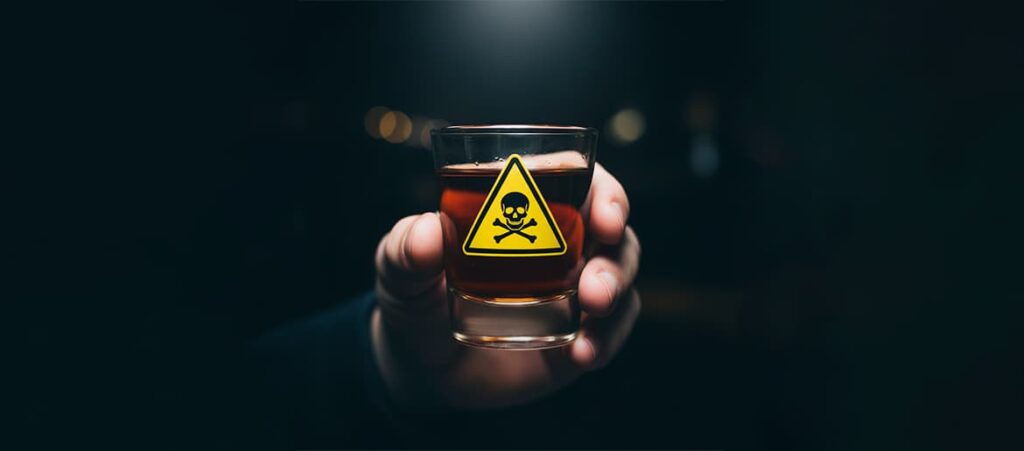Written by Rafael Garutti and Juliana Sborgi
Intellectual property in Brazil, far from being just an instrument of large corporations, plays a crucial social function, including in the protection of public health and consumer safety, especially in sensitive sectors such as fuels and beverages.
The case of methanol, which occurred in 2025 in Brazil, clearly illustrates this intersection between IP, traceability and safety. According to the Ministry of Justice and Public Security and Brazilian Health Regulatory Agency, the country has registered more than 40 confirmed cases and more than 140 notifications under investigation of intoxication caused by beverages adulterated with methanol, a highly toxic and potentially lethal chemical ingredient even in small doses. The seizures were mainly concentrated in São Paulo, where joint operations between the Federal Police, Consumer Protection Agency and the Sanitary Inspection closed clandestine factories and seized more than 6,000 liters of counterfeit beverages and more than 120,000 empty containers. According to reports by CNN Brazil and G1, released in September 2025, part of the products was commercialized with fake labels of known brands, highlighting the impact of counterfeiting on consumer safety and the reputation of national and foreign companies.
These incidents demonstrate that the production and distribution chain of beverages and chemical inputs can be easily exploited by illicit practices, with direct impacts on public health, consumer trust and the protection of legitimate trademarks. In Brazil, the registration of trademarks, patents and industrial designs is not only a bureaucratic formality, but a strategic instrument of traceability and quality control, essential to prevent counterfeits and protect the integrity of products. Absurd cases, such as counterfeit motorcycle brakes with hot-melt adhesive or beverages adulterated with methanol, reinforce that intellectual property also protects human lives, not just economic assets.
The importance of integrated supervision
The coordinated action between the BPTO, the Federal Revenue Service, the Federal Police, Consumer Protection Agency and the Sanitary Inspection agencies is essential to block adulterated products before they even reach the market. Initiatives such as the National Program to Combat Piracy and Illegality (PNCP, in Portuguese), the actions of the National Forum Against Piracy and Illegality (FNCP, in Portuguese), the adoption of authenticity seals and other forms of traceability have been improving this control, especially in ports and airports.
According to a survey by the Brazilian Association to Combat Counterfeiting (ABCF, in Portuguese), piracy and smuggling generated losses of about R$471 billion to Brazil in 2024, an increase of 27% over the previous year. According to the same study, the alcoholic beverage sectors were the most affected, with R$86 billion in losses, followed by clothing (R$51 billion) and fuels (R$29 billion).
In addition, according to data from the Federal Revenue Service, the volume of pirated products seized in Pará grew 305% in 2023 with items valued at R$15.9 million, while Brazilian Association of Fine Chemicals, Biotechnology and Specialties recorded 345 tons of illegal pesticides seized 2024, a significant increase in the market for untraceable inputs.
IP as a security and trust infrastructure in Mercosur
These data show that the protection of intellectual property is also a public policy of security and sustainable development. By promoting the registration of trademarks, trade secrets, confidentiality agreements and traceability systems, domestic and foreign companies reinforce not only their intangible assets, but also consumer protection and the integrity of the formal economy.
In the field of patents, BPTO’s acceleration and technology transfer programs have been offering greater predictability and agility, critical factors for investment decisions and for the safe sharing of know-how between technological partners.
Despite advances, the misuse of trademarks and the infiltration of counterfeit products remain relevant challenges in Mercosur. Cases of parasitic registration, when third parties try to register in bad faith internationally recognized trademarks remain recurrent, especially in the fashion, electronics and food sectors. According to a recent decision by BPTO, more than 100 abusive registrations of a single company were suspended in 2024, a clear sign that continuous surveillance is indispensable.
Neighboring countries, such as Chile and Paraguay, have already implemented systems for the customs registration of trademarks, which assist in the detection of counterfeits at the borders. In Brazil, educational actions in ports and airports, combined with compliance and digital traceability programs, remain fundamental to prevent the entry of illegal products even before judicial measures.
Investing in intellectual property in Brazil is investing in innovation, security and trust, three indispensable pillars to compete responsibly in an increasingly demanding global market.

